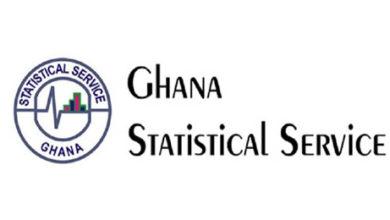Some institutions implementing RTI slowly — Oppong Nkrumah

The government has admitted that not all public institutions are implementing the Right to Information (RTI) Act, 2019 (Act 989) as quickly as expected.
“These are early days and, therefore, not all the ministries are implementing it as we expected. We are, however, testing the mechanisms, including using mystery shoppers to test their preparedness,” the Minister of Information, Mr Kojo Oppong Nkrumah, said at a press briefing yesterday.
The minister also acknowledged the fact that not all the issues to enhance the smooth implementation of the RTI Act this year had been resolved, due to delay in funding.
“The government will provide the funds this year to enable us to resolve outstanding issues, such as the provision of office space for the RTI Commission. The RTI Commission will also be sworn into office shortly,” he said.
Nothing stops you
Mr Nkrumah, however, added that nothing stopped anyone from accessing information under the RTI Act.
“In fact, people have applied for information at the Ministry of Information, to which we have responded accordingly,” he said.
According to him, the Ministry of Information had engaged the chief directors of all ministries on how to implement the RTI Act, as well as provide the ministries with the application guidelines.
“We have also directed all the ministries to designate their information officers to enable people to access information as required by the law,” he said.
He further revealed that the Ministry of Information would soon engage metropolitan, municipal and district assemblies (MMDAs) and independent state agencies to enable them to effectively implement the RTI Act.
RTI law
After more than two decades of advocacy and postponements, Parliament passed the RTI Bill into an act on March 26, 2019.
President Nana Addo Dankwa Akufo-Addo signed it into law on May 21, 2019.
The RTI Act is a law which gives the procedure by which people can exercise their constitutional right to information, as enshrined in Article 21 clause 1(f) of the 1992 Constitution.
The law was operationalised on January 2, this year.
Act 989 gives any Ghanaian who is 18 years and above the right to request for information from any public institution, provided that information is not exempted under the act.
One significant thing about the law is that it does not require the person seeking the information to state the reasons he or she is requesting for the information.
Procedure
The RTI Law requires the person requesting the information to apply for the information in writing and address it to the information officer designated to receive such applications by the particular institution where the request is being made.
In the event the applicant cannot write due to disability or illiteracy, the law requires the applicant to make the application orally for the information officer to write it and later read it to the understanding of the applicant.
Even though people can apply for information, there are situations where those requests could be refused.
First, information that is exempted under the law will not be made available to the applicant.
Exempt information include information that borders on national security, information for the President or the Vice-President, personal disclosures, such as the health status of people, information affecting international relations and privileged information such as a lawyer’s discussions with a client.
Also, a public institution could refuse to grant someone’s request for information if it feels the application for the information is “manifestly frivolous or vexatious”.
In such a case, the public institution must write to the applicant explaining the reasons for the refusal.
The applicant can, however, appeal to the RTI Commission and the High Court if he or she is not satisfied with the refusal.





